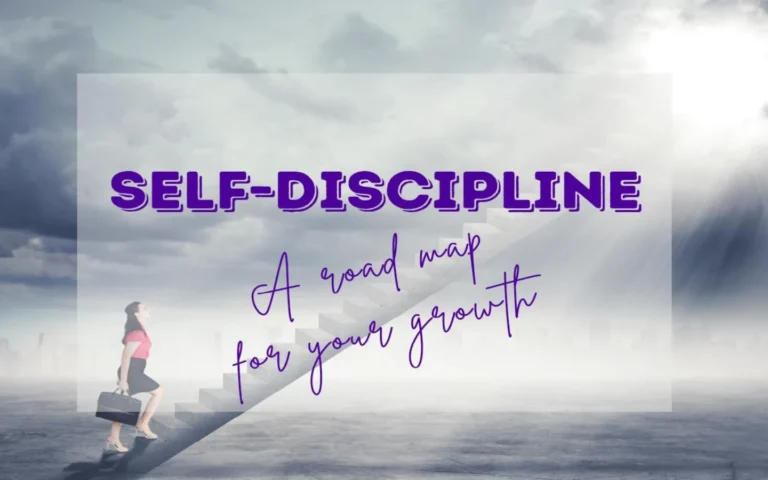17 Tips for Handling Failures in Life
Introduction

Failure is an inevitable part of life, and learning how to deal with failures in life can make all the difference between stagnation and growth. Whether it’s a failed relationship, a missed job opportunity, or a business setback, understanding how to handle failure is crucial. Here, we explore 17 comprehensive tips to help you cope with and overcome life’s failures, with practical examples and applications.
1. Accept Your Emotions

When dealing with failures in life, it’s important to allow yourself to feel. Ignoring your emotions can lead to more significant issues down the line. Accept that it’s okay to feel disappointed, frustrated, or even angry. Acknowledging these emotions is the first step towards healing. Emotions are natural responses to setbacks and recognizing them can prevent the buildup of negative feelings that can affect your mental health. Use the first tip when you think that how to handle failure.
Example: Imagine you’ve been working hard for a promotion, but it’s given to someone else. Instead of bottling up your frustration, take a moment to acknowledge your feelings. Talk to a friend or write in a journal about your disappointment. This helps in processing your emotions and prevents long-term resentment.
2. Reflect on the Failure

Take time to understand why the failure happened. Reflect on your actions and decisions that led to the outcome. This analysis is essential for learning and growth. Ask yourself questions like, “What could I have done differently?” or “What lessons can I take away from this experience?” By doing so, you turn the failure into a learning opportunity. Reflection helps in identifying patterns of behavior or decision-making that may need adjustment, allowing you to improve your approach in the future. Failures in life are the part of our success. It’s good to learn to handle failures in life and succeed.
Example: After a failed business venture, conduct a thorough review of your business plan and execution. Identify what worked and what didn’t. Perhaps the market research was insufficient or the marketing strategy was flawed. Use these insights to plan your next steps more effectively.
3. Don’t Personalize Failure

Remember that failure is a part of the process and does not define you as a person. It’s easy to fall into the trap of thinking you are a failure, but this mindset is detrimental. Focus on the situation, not on your worth. Separating your identity from your actions allows you to maintain self-esteem and confidence. Understanding that everyone experiences failure helps normalize the experience and reduces feelings of isolation or shame. Failures in life teach us how to succeed because success doesn’t mean absence of failures, it means presence of failures in life.
Example: If you didn’t get the job you interviewed for, don’t conclude that you’re unworthy or incapable. Instead, recognize that perhaps your skills weren’t the right fit for that particular role. Use this experience to refine your job search strategy or improve your interview techniques.
4. Seek Feedback

Constructive feedback can be invaluable when figuring out how to deal with failures in life. Ask trusted friends, mentors, or colleagues for their perspective. Their insights can provide you with a clearer understanding of what went wrong and how to improve. Feedback offers an external viewpoint that you might not have considered, highlighting areas for growth that are not immediately obvious. It also opens up opportunities for learning from others’ experiences and wisdom.
Example: After receiving a poor performance review at work, ask your supervisor for specific feedback on what you can improve. They might point out time management issues or gaps in your technical skills. Use this feedback to create a targeted development plan.
5. Stay Positive

Maintaining a positive outlook is crucial. While it’s natural to feel down after a failure, try to focus on the positives. Remind yourself of past successes and the strengths you possess. A positive mindset will help you navigate through tough times. Optimism fuels resilience, making it easier to recover from setbacks and keep moving forward. It also helps in seeing potential opportunities that might arise from the failure, rather than just the negative aspects.
Example: If you’ve failed an important exam, instead of dwelling on the failure, focus on your past academic achievements and strengths. Remind yourself of the subjects you excel in and use this positivity to motivate yourself for future attempts.
6. Set Realistic Goals

When setting goals, make sure they are realistic and achievable. Unrealistic expectations often lead to failure, which can be discouraging. Break your goals into smaller, manageable tasks, and celebrate small victories along the way. Setting SMART (Specific, Measurable, Achievable, Relevant, Time-bound) goals can help ensure that your objectives are practical and within reach. This structured approach minimizes the risk of overwhelming yourself and increases the likelihood of sustained progress.
Example: If you’re aiming to lose weight, set a realistic target, such as losing 1-2 pounds per week, rather than aiming for 20 pounds in a month. Break this down into daily habits like exercising for 30 minutes and choosing healthier meals. Celebrate each pound lost as a step towards your larger goal.
7. Develop Resilience

Resilience is the ability to bounce back from setbacks. Cultivating resilience can help you handle failures better. Engage in activities that build your mental and emotional strength, such as mindfulness, meditation, or physical exercise. Resilience is not an innate trait but a skill that can be developed over time. It involves maintaining flexibility, adapting to new circumstances, and persistently pursuing your goals despite obstacles.
Example: After being laid off from a job, instead of giving up, focus on building your resilience. Practice mindfulness to manage stress, start a daily exercise routine to boost your mood, and continue applying for new jobs while learning new skills that enhance your employability.
8. Learn from Mistakes

Every failure is an opportunity to learn. Analyze what went wrong and use that knowledge to avoid making the same mistakes in the future. Adopting a growth mindset will allow you to see failures as valuable learning experiences. This perspective shifts the focus from blame to improvement, fostering a proactive approach to personal and professional development.
Example: If a project you managed at work did not meet its objectives, take time to review each phase. Identify missteps, such as poor time management or inadequate resource allocation. Use these insights to adjust your strategy for future projects, ensuring better planning and execution.
9. Stay Persistent

Persistence is key when dealing with failures in life. Don’t give up after a setback. Keep pushing forward and stay committed to your goals. Remember that many successful people have faced numerous failures before achieving their dreams. Persistence involves maintaining effort and enthusiasm over the long term, even when progress seems slow. It requires a deep sense of commitment to your goals and a willingness to keep trying despite repeated failures.
Example: Thomas Edison is famously known for his persistence. He failed thousands of times before successfully inventing the light bulb. His attitude was that each failure was a step closer to finding a solution. Similarly, if you’re writing a book and face multiple rejections from publishers, keep refining your manuscript and submitting it until you find success.
10. Surround Yourself with Supportive People

Having a strong support system is vital. Surround yourself with people who believe in you and encourage you. They can provide emotional support and help you stay motivated during tough times. Supportive relationships can offer comfort, advice, and practical assistance, making it easier to cope with failures. They also provide a sense of belonging and validation, reinforcing your worth and potential.
Example: After experiencing a personal loss, spend time with family and friends who can provide comfort and understanding. Join a support group where you can share your feelings and learn from others who have gone through similar experiences. Their support can be crucial in your healing process.
11. Take Care of Your Health

Physical and mental health are interconnected. When dealing with failures, it’s essential to take care of your body. Eat a balanced diet, exercise regularly, and get enough sleep. A healthy body can support a healthy mind. Neglecting your health can exacerbate stress and hinder your ability to cope with challenges. Prioritizing self-care ensures that you have the energy and resilience needed to face setbacks effectively.
Example: If you’re feeling overwhelmed by a recent failure, prioritize self-care by engaging in regular physical activities such as yoga or jogging. Eat nutritious meals and ensure you get sufficient rest. This holistic approach can help manage stress and improve your overall well-being, making you better equipped to handle challenges.
12. Practice Self-Compassion

Be kind to yourself. Understand that everyone makes mistakes and experiences failure. Treat yourself with the same compassion you would offer a friend in a similar situation. Self-compassion can significantly impact your recovery process. It involves recognizing your suffering, being kind to yourself, and understanding that failure is a shared human experience. This approach reduces self-criticism and promotes emotional healing.
Example: If you’ve missed a critical deadline at work, avoid harsh self-criticism. Instead, acknowledge that mistakes happen and offer yourself words of comfort. Reflect on how you can manage your time better in the future and remind yourself that everyone has off days.
13. Reevaluate Your Approach

Sometimes, failure is a sign that you need to change your approach. Be open to trying new strategies and methods. Flexibility and adaptability can help you find better ways to achieve your goals. Reevaluating your approach involves being open to feedback, analyzing past efforts, and being willing to make necessary adjustments. It’s about finding more effective paths to success rather than persisting with ineffective methods.
Example: If your marketing campaign didn’t yield the expected results, analyze the data to understand what went wrong. Maybe your target audience wasn’t well-defined, or your message didn’t resonate. Adjust your strategy by refining your audience segmentation and testing different messaging.
14. Embrace Change

Change is a constant part of life. Embracing change can help you handle failures more effectively. View change as an opportunity for growth and innovation rather than a threat. Adapting to change requires a willingness to let go of old habits and embrace new ways of thinking and doing. It involves seeing change as a natural part of progress and an essential element of personal and professional development.
Example: If you’ve been relying on traditional marketing methods and they are no longer effective, embrace the digital transformation. Learn about digital marketing, social media strategies, and SEO to stay relevant and competitive in a changing market landscape.
15. Keep a Journal

Writing down your thoughts and experiences can be therapeutic. Keeping a journal allows you to track your progress and reflect on your journey. It can also help you identify patterns and gain insights into your behavior and decisions. Journaling provides a safe space to express your emotions and process your experiences. It can also serve as a valuable record of your growth and achievements over time.
Example: After experiencing a personal setback, start journaling your thoughts and feelings daily. Reflect on what happened, how you felt, and what you learned from the experience. Over time, this practice can provide valuable insights into your emotional and mental state, helping you navigate future challenges more effectively.
16. Focus on What You Can Control

It’s easy to feel overwhelmed by failure, especially when you focus on things beyond your control. Instead, concentrate on what you can control and take proactive steps to improve your situation. Focusing on controllable factors reduces feelings of helplessness and increases your sense of agency. It involves identifying specific actions you can take to address challenges and improve outcomes.
Example: If your startup failed due to market conditions beyond your control, focus on what you can do next. Conduct a post-mortem analysis to learn from the experience, and then pivot your business idea or start a new venture with the insights gained. Concentrate on your skills, strengths, and actions you can take to ensure better results in the future.
17. Celebrate Your Efforts

Recognize and celebrate your efforts, regardless of the outcome. Acknowledge the hard work you put in and the courage it took to try. Celebrating your efforts can boost your morale and motivate you to keep going. Recognizing your efforts reinforces a sense of accomplishment and encourages continued perseverance. It also highlights the importance of the journey, not just the destination.
Example: After completing a challenging project, even if it didn’t turn out as planned, take time to celebrate the effort you put in. Treat yourself to something you enjoy, like a nice meal or a day off. Reflect on the skills you developed and the experience you gained. This positive reinforcement can motivate you to tackle future projects with renewed energy.
Conclusion

Learning how to deal with failures in life is an essential skill that can significantly impact your personal and professional growth. By accepting your emotions, reflecting on your experiences, and maintaining a positive outlook, you can turn failures into stepping stones for success. Remember, every setback is an opportunity to learn, grow, and become more resilient. Surround yourself with supportive people, take care of your health, and stay persistent. Embrace change, focus on what you can control, and celebrate your efforts. With these 17 tips, you’ll be better equipped to handle life’s inevitable failures and emerge stronger and more determined.
Failure is not the end, but a crucial part of the journey towards success. By applying these strategies and maintaining a proactive and positive attitude, you can transform your relationship with failure and use it as a powerful tool for growth and improvement. Remember, the key is not to avoid failure but to learn how to deal with failures in life effectively and constructively. This comprehensive guide aims to equip you with the knowledge and practical tools needed to navigate the challenges and setbacks that life inevitably presents, ensuring that you come out stronger and more capable on the other side.
Read More Articles:
5 Laws of Stratospheric Success
8 Ways to Be Successful in Life: Timeless Wisdom|
APJ Abdul Kalam Motivational Quotes
A Great And Motivational Biography And Life Story Of Abraham Lincoln
Navigating Setbacks: 15 Rules for Effectively Dealing with Failures and Cultivating Success
5 Laws of Success: Unlocking Great Laws
Timeless Wisdom: Unveiling Success through Andrew Carnegie Motivational Quotes
Breaking the Chains: 11 Principles for Overcoming Laziness and Unlocking Productivity





